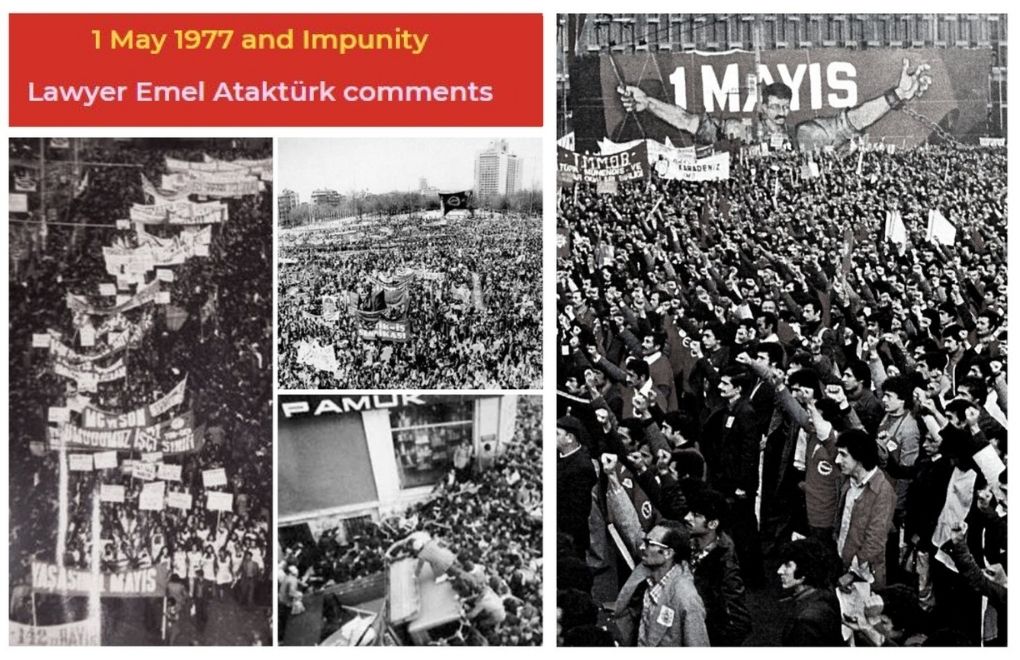Click to read the article in Turkish
Hundreds of thousands of people had gathered in Taksim Square to celebrate the First of May. A huge crowd. Entry into the rally area was taking an extremely long time, and the speeches were all starting late. The date was 1 May 1977, a Sunday. A warm and sunny spring day.
In the photographs taken before the incident, the joy of solidarity and elation can be seen in the faces of everyone. It is around 7pm, the speeches have overrun, and it still isn't dark yet. All of a sudden, gunshots are heard. We all know what comes next: Horrendous panic, people shot, toppled over one another, crushed, suffocated.
The cold face of death and numbers. According to official records, 34 people lost their lives. Five of them had been directly targeted and shot dead with a single bullet to the head or neck.
Most of the others were crushed and suffocated. Many were injured. Each of the dead has their own unique story. Students, workers, people of all ages and occupations who had to bid farewell to life ahead of their time.
A different era
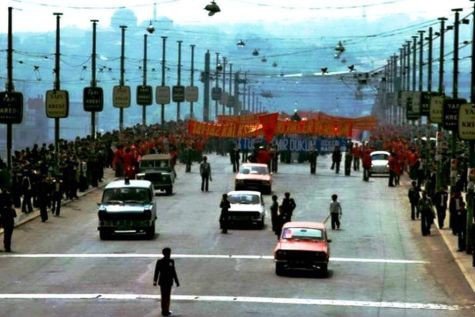
It might be difficult to envisage from where we stand today, but 1977 was a totally different era, both for the world and for this country. The total population of Turkey was around 41 million back then, and most had become familiar with politics at an early age.
For the women and men, but particularly for the youth—with their long hair, long moustaches, pointed-collar shirts and thick-rimmed glasses—politics was a real part of everyday life. Carrying books tucked beneath their arms, and dreaming of a life of justice and equality, these young people planned to change the world.
There were meetings and demonstrations each and every day, in schools, in factories, in cities. Television had only a single, black-and-white channel, and the morning radio programmes concerned themselves with battling foot-and-mouth disease in cows, and wheat bugs in the fields...
Quest for justice
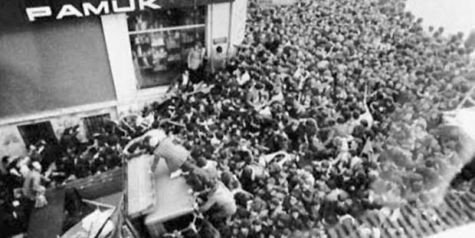
Of that population of 41 million, five-hundred thousand people were in Taksim Square on 1 May 1977 was, according to the Confederation of Progressive Trade Unions of Turkey (DİSK), or one-hundred thousand according to official figures.
Official records show that all the newspapers published at the time proclaimed beforehand that incidents were certain to break out during the celebrations, yet the number attending the rally shows that the media's fearmongering did not keep people away. Such a passionate quest for justice must have been alarming for some.
According to official records, 211 police commanders were present at 41 police points; 2,380 police officers were on duty, and the gendarmerie was positioned by the square to intervene if necessary.
However, for some reason, just as there was a failure to prevent the violence that day, ensuing investigations also failed to reveal the identities of the perpetrators or uncover the motives.
Statute of limitations
In the 43 years that have passed, everything still remains hidden behind a dark curtain of mystery, with the perpetrators still unknown. It should not be that difficult to ascertain who was on duty in what capacity that day, out of which hotels rooms the shootings occurred, and who was staying in those rooms. But there must, you see, be insurmountable obstacles in the way, because none of this has happened, it has proven impossible.
Instead, this is what happens: Not a single security force member is dismissed for their responsibilities in the incident. The lawyers of those killed and wounded spend years filing complaints and working tirelessly for the truth to be brought to light.
Court cases against a small number of law enforcement officials who were charged are dragged out for years, verdicts of non-jurisdiction result in the cases being sent from one court to the next, administrative leaves put everything on hold time and time again, and finally the cases are closed, having reached the statute of limitations.
Rather than the perpetrators being brought to justice, in the 43 years that have passed, it is the victims who have been put on trial and, although eventually acquitted, who have suffered gratuitous harassment for years.
The real question is this: Though years have passed and the parties in power have changed, the truth behind what happened has still not been brought to light and nothing has changed in terms of the policy of impunity. It is still unclear who opened fire that day. Why?
The 12 September indictment
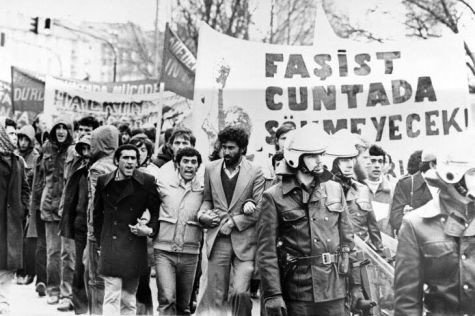
Decades after the military coup of 1980, a trial was brought against the coup's leaders, with the claim of seeking justice for the severe human rights infringements that happened at the time. The 1 May 1977 massacre appeared in the "12 September Indictment" submitted for this trial, under the heading "Incident Analysis":
"With regard to the incident that took place on 1 May 1977, and resulted in the deaths of 34 people and the wounding of many others, in light of the course of events surrounding the incident, eyewitness testimonies, and in the knowledge that those who opened fire from the Intercontinental Hotel and the roof of the Water Administration building were clearly seen by many yet escaped security forces entirely, the conclusion has been reached that the incident was a provocation, caused by those wishing to drag society into a state of chaos and conflict, the ultimate goal being the preparation of the grounds leading to a military coup, shaped and plotted by those within the state wishing to seize power, and that these same forces in effect prevented the police from performing their duty."
In his statement for the investigation, the first prosecutor of the case, Çetin Yetkin, explains, "I was the prosecutor in the case regarding the incidents of 1 May 1977. In the first hearing, I asked for the investigation to be extended, for the true perpetrators to be found, and for charges to be pressed against several public officials who were, as could be ascertained from the file, clearly culpable.
As soon as I did so, I was removed from the case. This was not the way the Office of the Chief Public Prosecutor of Istanbul wanted this case to be conducted, and therefore I was removed."
Neither during the prosecution processes following this incident, nor during the trials related to the 1980 military coup were the points highlighted in the testimonials above investigated as they should have been, even though it was stated that "the incident was a provocation, shaped and plotted by those within the state wishing to seize power, and these same forces in effect prevented the police from performing their duty."
Ecevit's declaration
When he became Prime Minister in June 1977—one month after 1 May 1977—leader of the Republican People's Party (CHP) Bülent Ecevit said, "From day one we have faced walls obstructing us. It is obvious who opened fire, who caused panic to arise resulting in the death of more than 30 people. The police must have recorded them on film. Still we have been given no information."
Parliamentary Report
The same testimonials appeared in the 2012 Parliamentary Research Commission for Coups and Military Memorandums report. This report also makes reference to the murders of prosecutor Doğan Öz and journalists Abdi İpekçi and Uğur Mumcu, who were believed to have been killed because of their investigations into the dark forces that played a role in the 1 May 1977 massacre and other events prior to the coup.
This report also mentioned another special report on counterinsurgency that had been presented by prosecutor Doğan Öz to then-Prime Minister Bülent Ecevit, inviting those wishing to solve the cases in question to look at these files. The report also included Ecevit's words of 26 May, 1973: "The nature and objectives of this seemingly official but actually unofficial organisation called the counterinsurgency has not been uncovered. The counterinsurgency will be called to account."
1 May 1977 is not the only incident prior to 12 September that has not been brought to light; the Beyazıt massacre of 16 March 1978, the Sivas, Maraş and Çorum incidents, the murders of journalists and academics, and the torture, forced disappearances, extrajudicial and arbitrary executions that took place during this time remain unsolved to this day.
The obstacle of state secrets
The trials in all of these 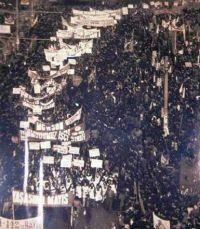 cases share particular characteristics: Suspects or defendants are protected and shielded no matter what, the scope of the investigation and trial is kept narrow, and the cases are dragged out until they are eventually dropped due to the statute of limitations.
cases share particular characteristics: Suspects or defendants are protected and shielded no matter what, the scope of the investigation and trial is kept narrow, and the cases are dragged out until they are eventually dropped due to the statute of limitations.
The connections between the incidents and the backdrop to those incidents are not investigated, there are always people and institutions with legislative immunity who cannot be investigated, the judiciary is a part of the machinery of impunity and generally adopts an approach that legitimises not the victim but the defendant, and in almost all trials we face the obstacle of state secrets.
The United Nations and Council of Europe define impunity as the "the impossibility [...] of bringing the perpetrators of violations to account [...] since they are not subject to any inquiry that might lead to their being accused, arrested, tried and, if found guilty, sentenced to appropriate penalties, and to making reparations to their victims."
What is underlined here is the responsibility of the state, which yet again fails to find, investigate, try, or sentence the perpetrators of crimes.
The fight against impunity
According to international reference documents, the fight against impunity is related to four fundamental types of rights and obligations.
The first of these is the Right to Justice, for which is important for the victims' suffering to be recognised and acknowledged by official authorities, and which thus requires the existence of punitive and reparatory mechanisms of justice. The second is the Right to the Truth, which refers to the liability of the state to bring to light where and how the violations occurred, who they targeted and why, as well as who carried out the violation, and under whose orders.
The state holds an obligation to open official records and archives, grant access to evidence and documents regarding violations, and to eradicate denialist tendencies, and also to ensure the right to reparation and the guarantee of non-recurrence.
In light of these definitions, impunity in Turkey is a highly alarming tradition that destroys all possibility of democracy, prioritises the protection of public officials over the country's citizens when there has been violation of human rights, and has its roots in a statist mentality.
Resistance and remembrance
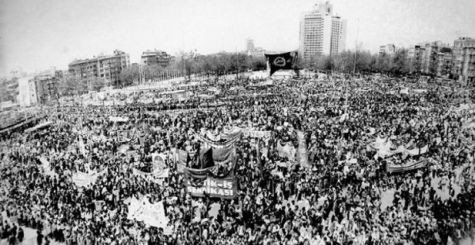
There are some wounds that time can heal only if those wounds are made public, if they are made visible, and if they are acknowledged by others.
This is why resistance against the wilful erasure of memory, and remembrance as a matter of dignity are our debt both to the victims and to our own future. If we are to build a collective future, it is of utmost importance that we, here and now, become part of the struggle to end denial and impunity. (EAS/TÇ/APA/SD)
About Emel AtaktürkLawyer and human rights advocate. She is one of the founders of the Memory Center and still works as a program manager in the field of law at this organization. She worked as a member and executive at non-governmental organizations such as the Human Rights Association, the Human Rights Foundation of Turkey and the Helsinki Citizens' Assembly. |
 |
| This text was created and maintained with the financial support of the European Union provided under Etkiniz EU Programme. Its contents are the sole responsibility of "IPS Communication Foundation" and do not necessarily reflect the views of the European Union. |
CLICK - 1 May 1977 e-book is online
The ones who lost their lives on 1 May '77The ones whose loved ones we could talk to: Ahmet Gözükara (34, teacher), Ali Sidal (18, worker), Bayram Çıtak (37, teacher), Bayram Eyi (50, construction worker), Diran Nigiz (34, worker), Ercüment Gürkut (27, university student), Hacer İpek Saman (24, university student), Hamdi Toka (35, Seyyar Satıcı), Hasan Yıldırım (31, Uzel worker), Hikmet Özkürkçü (39, teacher), Hüseyin Kırkın (26, worker), Jale Yeşilnil (17, high school student), Kadir Balcı (35, salesperson), Kıymet Kocamış (Kadriye Duman, 25, hemşire), Kahraman Alsancak (29, Uzel worker), Kenan Çatak (30, teacher), Mahmut Atilla Özbelen (26, worker-university student), Mustafa Elmas (33, teacher), Mehmet Ali Genç (60, guard), Mürtezim Oltulu (42, worker), Nazan Ünaldı (19, university student), Nazmi Arı (26, police officer), Niyazi Darı (24, worker-university student), Ömer Narman (31, teacher), Rasim Elmas (41, cinema laborer), Sibel Açıkalın (18, university student), Ziya Baki (29, Uzel worker), The ones whose loved ones we did/could not talk to: Aleksandros Konteas (57, worker), Bayram Sürücü (worker), Garabet Akyan (54, worker), Hatice Altun (21), Leyla Altıparmak (19, hemşire), Meral Cebren Özkol (43, nurse), Mustafa Ertan (student), Ramazan Sarı (11, primary school student) The ones only the names of whom are known: Ali Yeşilgül, Mehmet Ali Kol, Özcan Gürkan, Tevfik Beysoy, Yücel Elbistanlı The one whose name is unknown: A 35-year-old man |
The voices of those who lost their loved ones: 1 May '77 and impunity
Political panorama of Turkey-1977
Film industry worker Rasim Elmas, 41, died in Taksim
Construction Worker Bayram Eyi, 50, died in Taksim
Teacher Bayram Çıtak, 37, died in Taksim
High School Student Jale Yeşilnil, 17, died in Taksim
Teacher Kenan Çatak, 31, died in Taksim
Teacher Ahmet Gözükara, 33, died in Taksim
Teacher Hikmet Özkürkçü, 39, died in Taksim
Student-laborer Niyazi Darı, 24, died in Taksim
University student Nazan Ünaldı, 19, died in Taksim
Teacher Ömer Narman, 31, died in Taksim
Laborer Ali Sidal, 18, died in Taksim
Counterperson Kadir Balcı, 35, died in Taksim
Student Hacer İpek Saman, 24, died in Taksim
Factory Worker Kahraman Alsancak, 29, died in Taksim
Laborer Hüseyin Kırkın, 23, died in Taksim
Student Ercüment Gürkut, 26, died in Taksim
Public order police officer Nazmi Arı, 26, died in Taksim
Laborer Mahmut Atilla Özbelen, 26, died in Taksim
Factory worker Hasan Yıldırım, 31, died in Taksim
Itinerant salesperson Hamdi Toka, 35, died in Taksim
Security Guard Mehmet Ali Genç, 60, died in Taksim
Factory Worker Ziya Baki, 30, Died in Taksim
Laborer Mürtezim Oltulu, 42, Died in Taksim
Teacher Mustafa Elmas, 33, Died in Taksim
Student Sibel Açıkalın, 18, died in Taksim
Laborer Diran Nigiz, 34, died in Taksim
1 May 1977 & Impunity
'The state is implicated in this crime, perpetrators must be put on trial'
'If you can't find the killers, you can't remove the stain'
'The perpetrators of the 1 May 1977 massacre got away with it'
Remembrance as a matter of dignity and the fight against impunity
Who is hiding the truth and why?





